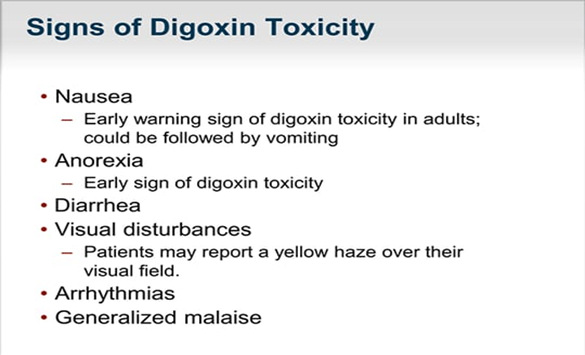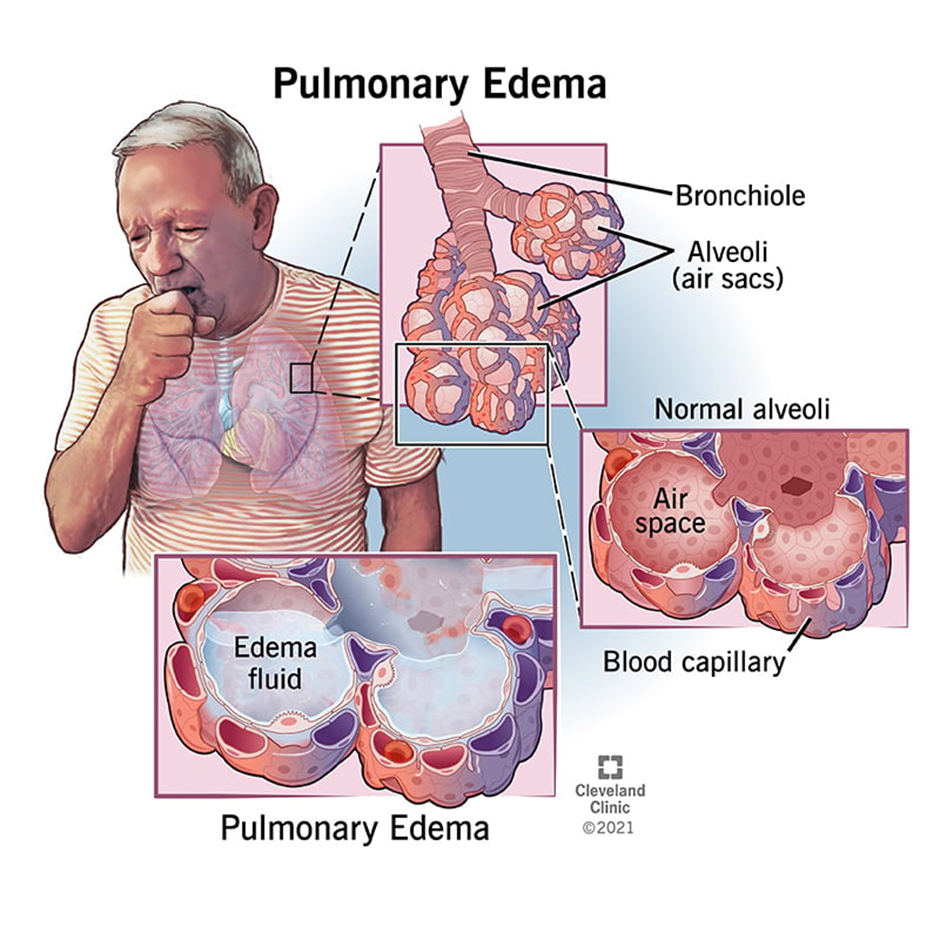A nurse is assessing a client who has heart failure and is taking digoxin. Which of the following findings should the nurse identify as an early indication of medication toxicity?
Visual disturbances
Sudden weight gain
Potassium 4.4 mEq/L
Insomnia
The Correct Answer is A
Choice A Reason:
Visual disturbances is the correct findings. In individuals taking digoxin, visual disturbances such as blurred or yellow-tinted vision can indicate early signs of medication toxicity. This symptom often requires prompt medical attention, as it can precede more severe complications.
Choice B Reason:
Sudden weight gain is not correct. While weight gain can be a symptom of worsening heart failure, it's not typically associated specifically with digoxin toxicity. It's more commonly related to fluid retention in heart failure.
Choice C Reason:
Potassium 4.4 mEq/L is not correct. This potassium level is within the normal range. Digoxin toxicity can be exacerbated by low potassium levels, but a normal potassium level doesn't directly indicate digoxin toxicity.
Choice D Reason:
Insomnia is not a typical early sign of digoxin toxicity. It's more commonly associated with issues like difficulty sleeping rather than being a direct symptom of digoxin toxicity.

Nursing Test Bank
Naxlex Comprehensive Predictor Exams
Related Questions
Correct Answer is C
Explanation
Choice A Reason:
Levothyroxine 100 mcg PO every morning is incorrect. Indicates the dosage (100 mcg) and the route (by mouth) to be taken every morning.
Choice B Reason:
Simvastatin 40 mg PO at bedtime: Specifies the dosage (40 mg) and the timing (at bedtime) for administration.
Choice C Reason:
Acetaminophen 500 mg every 4 hr RN for fever is correct. The term "RN" in this context might be interpreted as "right now" rather than the intended meaning, which could cause confusion regarding the frequency of acetaminophen administration. The nurse should seek clarification to ensure accurate and safe dosing instructions.
Choice D Reason:
Morphine 4 mg IV every 4 hr PRN for pain: Specifies the dosage (4 mg), the route (intravenous), and the frequency (every 4 hours as needed) for pain management.
Correct Answer is C
Explanation
Choice A Reason:
Dark amber urine is incorrect. Dark urine can indicate concentrated urine, often seen in dehydration when the body is trying to conserve water.
Choice B Reason:
Decreased skin turgor is incorrect. Decreased skin turgor is a classic sign of dehydration, indicating that the skin lacks elasticity due to insufficient fluid intake or loss.
Choice C Reason:
Pink, frothy sputum is correct. Normal saline is a common intravenous solution used to treat dehydration. However, in some cases, especially when administered in excessive amounts, it can lead to fluid overload or pulmonary edema. This can manifest as pink, frothy sputum, indicating potential pulmonary congestion or edema, which is a serious adverse effect of fluid overload.
Choice D Reason:
Increased bowel sounds is incorrect. Increased bowel sounds can be seen in various conditions, including gastrointestinal disturbances or hyperactive bowel motility, but it's not typically associated with the adverse effects of normal saline administration.

Whether you are a student looking to ace your exams or a practicing nurse seeking to enhance your expertise , our nursing education contents will empower you with the confidence and competence to make a difference in the lives of patients and become a respected leader in the healthcare field.
Visit Naxlex, invest in your future and unlock endless possibilities with our unparalleled nursing education contents today
Report Wrong Answer on the Current Question
Do you disagree with the answer? If yes, what is your expected answer? Explain.
Kindly be descriptive with the issue you are facing.
